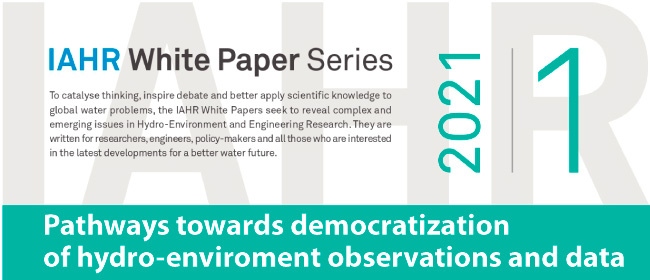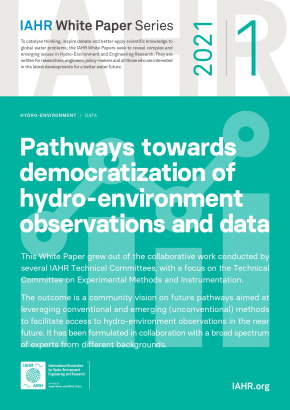A need for decision makers, a challenge for the empiricists: An IAHR white paper on pathways towards democratization of hydro-environment observations and data
Water-related problems affect several billion people’s lives and represent an annual challenge assessed at multitrillion US dollars, which substantiates their core role in the UN Sustainable Development Goals. Preventing direct and indirect impacts associated with water excess or water scarcity events requires expert judgement based on reliable information. Therefore, observations and measurements are fundamental prerequisites for making scientific progress.
The current policy trend towards open-science (open-data repositories, open-software communities, open-access publications), is an opportunity for data democratization. However, it must be affordable and sustained by trusted researchers and scientific institutions in order for it to become a real instrument of progress towards common access. Furthermore, the easy access to information may contribute to the false perception of assurance. Experts capable of interpreting the data and aware of their limitations, should always be involved to avoid ill-informed governance and policy-making processes.
In this new IAHR white paper, a broad spectrum of experts from different backgrounds, including Assoc. Prof. Michael Nones from the Department of Hydrology and Hydrodynamics of IG PAS, guided by the focus of the IAHR technical committee on Experimental Methods and Instrumentation provides a community vision on future pathways aimed at leveraging conventional and emerging methods to facilitate access to hydro-environment observations.























